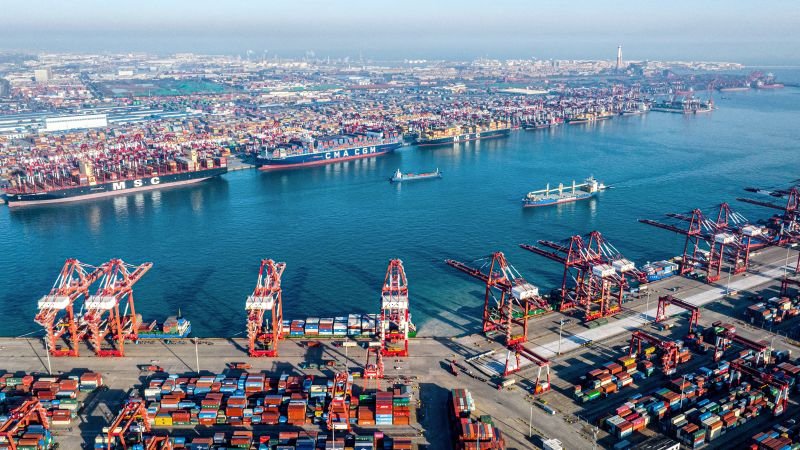Physical Address
304 North Cardinal St.
Dorchester Center, MA 02124
Physical Address
304 North Cardinal St.
Dorchester Center, MA 02124

China pledged on Thursday to widen its budget deficit, borrow more and loosen monetary policy to maintain stable economic growth as it fends off heightened trade tensions with the United States, which returns as President Donald Trump.
Statements by state media read the annual agenda-setting meeting of China’s top leaders held on December 11-12, known as the Central Economic Labor Conference.
“The adverse impact brought about by changes in the external environment has deepened,” national broadcaster CCTV said after the closed-door CEWC.
This year’s meeting comes as the world’s second-largest economy stutters due to a severe housing market crisis, high local government debt and weak domestic demand. Exports, one of the few bright spots, face the threat of higher US tariffs.
A separate reading by the state-run Xinhua news agency said financial markets, referring to the yuan currency, maintained their “commitment to maintaining the fundamental stability of the exchange rate in a reasonable and balanced manner.”
CEWC’s pledges match the tone of one of the most modest statements by Communist Party leaders in more than a decade, viz. was released on Monday After the Politburo meeting, the highest decision-making body.
The Politburo said China will shift to an “appropriately loose” monetary policy stance and more “proactive” fiscal leverage, as well as increase “non-conventional countercyclical adjustments”.
In the same vein, the CEWC summary indicated a higher budget deficit and more debt issuance at the central and local government levels. Leaders vowed to reduce bank reserve requirements and cut interest rates in a “timely” manner.
“The direction is clear, but the size of the stimulus matters, which we will probably only know after the US announces tariffs,” said Zhiwei Zhang, chief economist at Pinpoint Asset Management.
This appropriate shift in messaging shows that China is prioritizing growth over financial risks, analysts said.
At the CEWC, Beijing sets economic growth, budget deficit, debt issuance and other variables for the coming year. The targets are agreed at the meeting but will not be officially released until the annual parliamentary meeting in March.
The CEWC reading said it was “necessary to maintain stable economic growth” but did not mention a specific rate.
“Maintaining 5% will be quite difficult in 2025, given that the additional ‘Trump shock’ will affect exports” and capital spending, said Xu Tianchen, senior economist at the Economist Intelligence Unit.
“However, a good level of stimulus will prevent a free fall, and I don’t think growth will stay below 4.5%.”
Trump’s tariff threats have rattled China’s industrial complex, which sells more than $400 billion worth of goods to the US every year. Many Chinese manufacturers are shifting production overseas to escape the tariffs.
Exporters say the taxes will further reduce profits, harming employment, investment and economic growth. China’s industrial overcapacity and deflationary pressures would also increase, analysts said.
If exports take a hit, China must look domestically for a new engine of growth. But consumers feel less wealthy as a result of falling property prices and minimal social welfare. Low family demand poses a key risk to growth.
Beijing has made increasingly strong statements to boost consumption throughout the year, but has offered little in terms of policy beyond a subsidy scheme for buying cars, appliances and other goods.
The CEWC summary said the scheme would be expanded and pensions raised, and efforts would be made to increase household incomes and “vigorously stimulate consumption”.
“Markets can be pushed,” said Lynn Song, chief economist for Greater China at ING. “The call to strongly promote consumption is a good sign.”